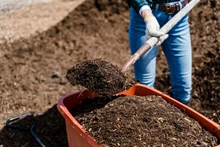
In the heart of Gujarat, Ahmedabad, is an educational institution blending the principles of Waldorf education with hands-on farming experiences. Shining Spiral is a testament to innovative learning, offering children a holistic approach to education by integrating traditional wisdom with modern pedagogy.
Recognised by the International Association for Steiner/Waldorf Early Childhood Education (IASWECE), Shining Spiral is Gujarat's first Waldorf School. Founded by Meenakshi Trivedi, the school seamlessly weaves the International Waldorf Curriculum with India's rich cultural heritage.
Nurturing Curiosity Through Farming
Meenakshi Trivedi emphasises the importance of addressing a child's curiosity and fostering a connection with nature. She said, "The Waldorf Curriculum is thoughtfully tailored to suit the developmental stage of the child, particularly in class three, where children typically range from 8 to 9 years old. It aligns with this time when children begin to grasp their identities and perceive the world with a burgeoning sense of curiosity and inquiry."
"This curriculum aims to foster a deep connection between the child and their surroundings, encouraging a harmonious relationship with both the natural environment and the wider world. By providing hands-on experiences that immerse children in their surroundings, Waldorf education nurtures the innate curiosity of each child. Through practical activities centered around essential aspects of life such as food, shelter, and collaboration, students gain invaluable real-life insights. For instance, in the Class Three curriculum, the subject of farming serves as a gateway to exploring scientific principles tangibly and engagingly," Trivedi added.
From Soil to Plate: A Journey of Learning
The school's farming curriculum begins with practical tasks like weeding, instilling a sense of responsibility towards the earth.
Next, the students are given the responsibility of collecting the vegetable/fruit petals from the entire school and put in the compost bin. Pits were dug, and large vessels were used for composting. Again the focus was to make the children understand, ‘from the soil to the soil’.
Students are also engaged in mathematical exercises through activities like building raised beds, utilising resources creatively.
Mahima Gupta, the gardening teacher, emphasised the hands-on experience students gained by cultivating seasonal vegetables on the school's prepared land. Some crops, like bottle gourd, tindora, and beans, required structural support as they climbed. The use of vermicompost, sourced from the school's unit, enriched the soil, while students actively engaged with cow dung and urine to further enhance its fertility. Additionally, compost produced on-site contributed to the soil's health. Over eight months, students developed profound insights, including a newfound belief in their ability to nurture life from the soil, a deeper understanding of seasonal vegetable cycles, an appreciation for the labor of farmers, and an awareness of the interconnectedness of various professions, such as farmers, dairy farmers, potters, and blacksmiths, all essential to the food production chain. This hands-on learning experience instilled a profound respect for the food on their plates.
In this way, they witness the cycle of food production firsthand, from planting seasonal vegetables to harvesting and consumption.
Experiencing the Farmer's Life
To deepen their understanding, students participate in farm visits, where they work closely with the farmers. One such farm where they went for rice cultivation was in Kheda. According to Achal Patel from Krishi Vigyan Kendra, Kheda, "During the farm visit, the students get involved in the process of transplantation of paddy saplings from the nursery. A subsequent visit happens after 4 months when the harvesting is going on exposing students to the process of threshing and winnowing in the paddy fields after the harvesting."
Understanding the Value of Food and Agriculture
Through these experiences, children develop a profound appreciation for food and agriculture. They connect with the seasons, recognise the toil of farmers, and understand the interconnectivity of professions in the food supply chain. The school's ethos revolves around valuing food and respecting the hands that nurture it.
Meenakshi Trivedi highlights how children grasp the deeper meaning behind their daily prayers, acknowledging the roles of the sun, earth, and farmers in nourishing them. At Shining Spiral, education transcends conventional boundaries, emphasising experiential learning over passive instruction.
Nurturing Holistic Development
Shining Spiral exemplifies the transformative potential of education when coupled with real-life experiences. By integrating farming into the curriculum, the school nurtures not only academic growth but also emotional and practical intelligence. As the first Waldorf School in Gujarat, it paves the way for a new paradigm in education, one where hands-on learning cultivates minds and souls alike.
Waldorf Education: A Global Movement
Originating in 1919 in Stuttgart, Germany, Waldorf Education has flourished worldwide, with over 1,200 schools and 1,900 kindergartens. In India, the movement continues to expand, with nearly 50 schools across various states. Rooted in the holistic development of children, Waldorf education remains a beacon of progressive pedagogy, shaping the leaders of tomorrow.











